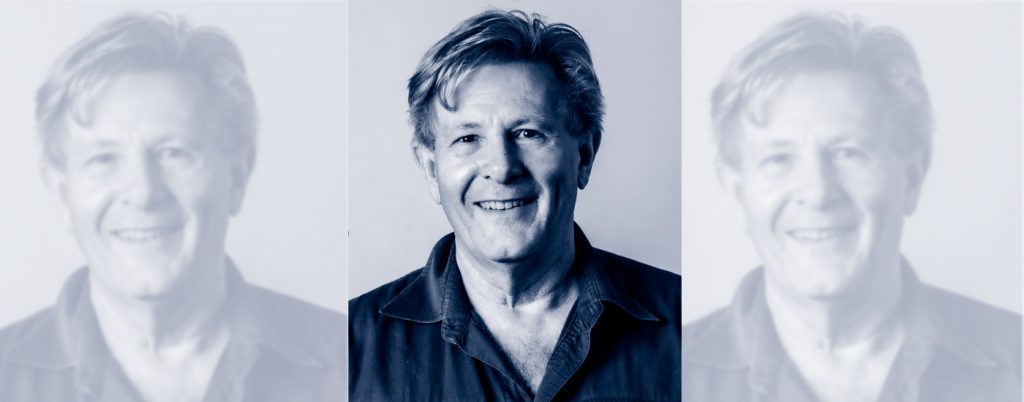For the past 20 years David Donnelly has been asking baby boomers what they think, want and are most concerned about. Life satisfaction looms large. Donnelly’s social research consultancy organisation, instinct and reason, brings organisations to the marketplace, advising how to sell and at what price.
But as many boomers will attest, if you can’t see me, you can’t sell to me.
Donnelly saw the spike of boomer consumers with an over representation of wealth back in 2001. Since then, his social research has kept a tab on societal trends while he observed a market focused on younger people, often to the detriment of potential profits.
But one of instinct and reason’s most startling findings is the alarming number of older people – 38% of over 50s – who agree with the statement ‘I am becoming invisible as I get older’.
This is not limited to ageism – it is a form of non-existence.
Donnelly explains the trajectory. Most people experience a career peak at about age 40, he maintains, and then spend the next 25 years in some form of stasis, with no promotion, fewer new tasks, little investment in their training and rare invitations to offer feedback or ideas.
‘It’s a shock to learn we don’t matter so much anymore’ he says. ‘And then we learn to accept it’.
His research notes a rollercoaster journey, covering three stages:
- Age 50-55 – 43% agree they are becoming invisible
- Age 55-64 – dips to 30% as people accept this new status
- Age 65+ – rises back to 43% as the longer term ramifications kick in
Donnelly connects this invisibility to other factors including ageism, poverty, loneliness, lower educational status and lower skill levels.
And then there is the gender card.
Of the 38% of over 55s who claim to feel invisible, 60% are women, just 40% men.
‘It hits women harder’, he notes, with many wanting to challenge this experience of invisibility by losing weight or getting fitter.
Donnelly believes the group he sees as having a miserable time (15% who score only 1-3 out of 10 for life satisfaction) are those more likely to suffer from chronic illness, lack of wealth, dying younger – and over represented in deaths from Covid.
We discussed whether this 15% of older adults was invisible in a wider sense. He referred to the Blue Zones in Japan and Sardinia and the strong sense of community and purpose experienced by people in these regions.
‘When you’re invisible you have no purpose, meaning or contribution’ he said.
In his research, he asked older adults what they expected from government. Many respondents saw ageism as a key issue – they wanted government to focus on this, make people more aware of it and change this culture.
But he also noted an interesting response to ageism from baby boomers in particular.
Often, rather than fighting it, they had a ‘bugger you’ response – ‘If you don’t want me, then I won’t stay in the workforce, I’ll go and sit on an island and refuse to engage’.
Another interesting aspect of Donnelly’s research is that people living in an aged care residence (about 8% of the older population in Australia) found more validation there, as many of the staff came from cultures in South East Asia where older people are accorded more respect.
‘The staff listened to their stories. In their cultures, the older you are the more respect you gain as you have lived through being young’.
But this is not true of the wider business world, society or younger generations as they are so busy living their own stories, they have little capacity for stories from those who have gone before.
‘When you feel you’re invisible, you slide further back, you lock the door’.
Which makes sense of another sad statistic – that the fastest growing suicide group is males aged 80 and older.
How to combat this pervasive issue?
Donnelly points to the need for more consistency of service delivery for older adults. The Australian system is both overly complex and inconsistent. This is often because it can be delivered by any one or all of three levels of government. More affordable and accessible community services would help, he says. Social prescribing is also a ‘hot space’ where positive, doable initiatives can ensure many adults do not remain behind locked doors . And using technology for digital matching can also help bring people together in fulfilling ways.
Donnelly notes that human experience doesn’t change dramatically from one generation to the next. Our needs remain the same. Loneliness is now an epidemic, for all ages.
Recognising invisibility and challenging it might offer a great place to deliver benefits now – and for generations to come.
David doesn’t just talk the talk; he is also on the Not-for-Profit Be Someone for Someone advocacy group fighting loneliness https://besomeoneforsomeone.org/

